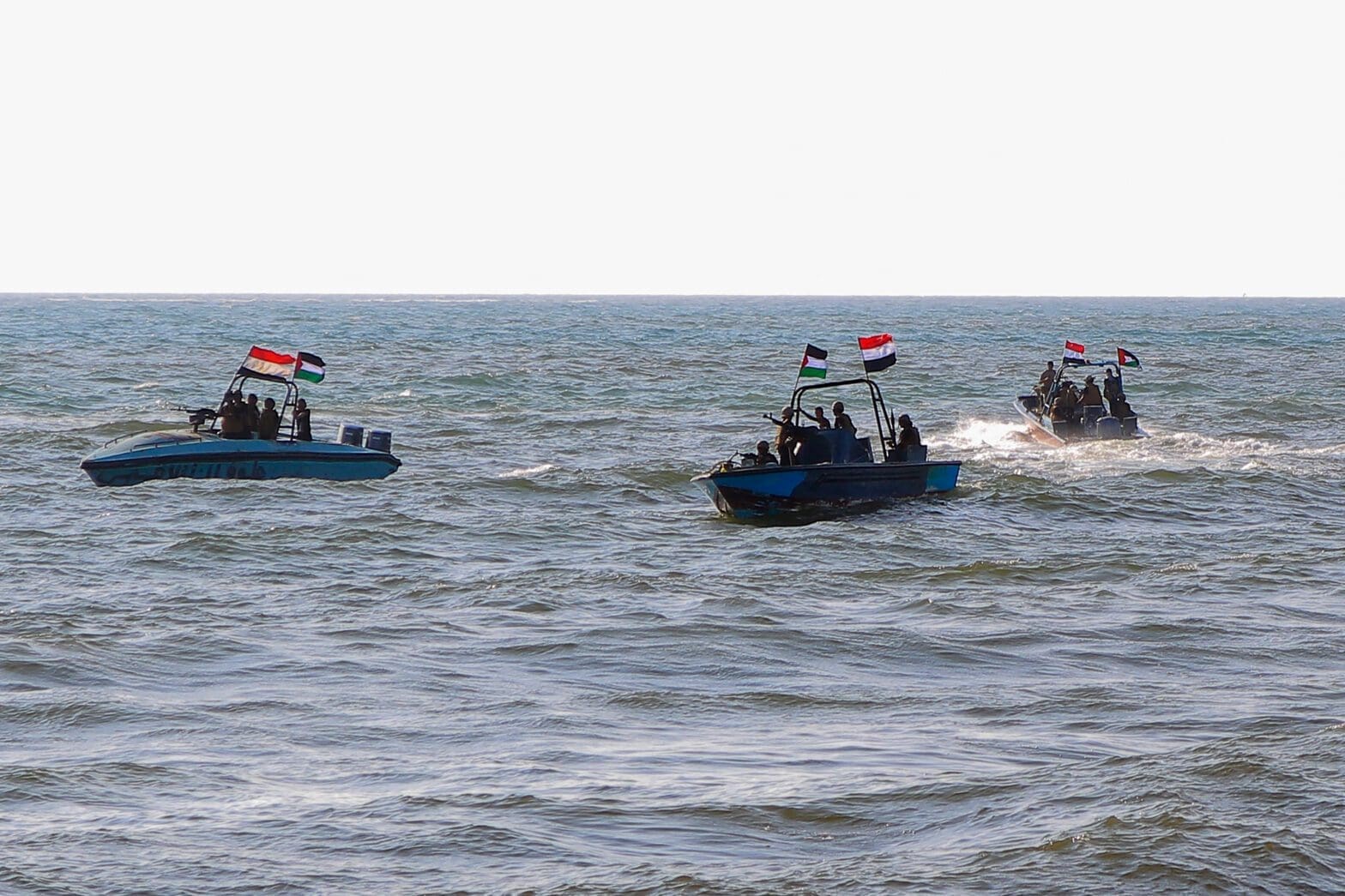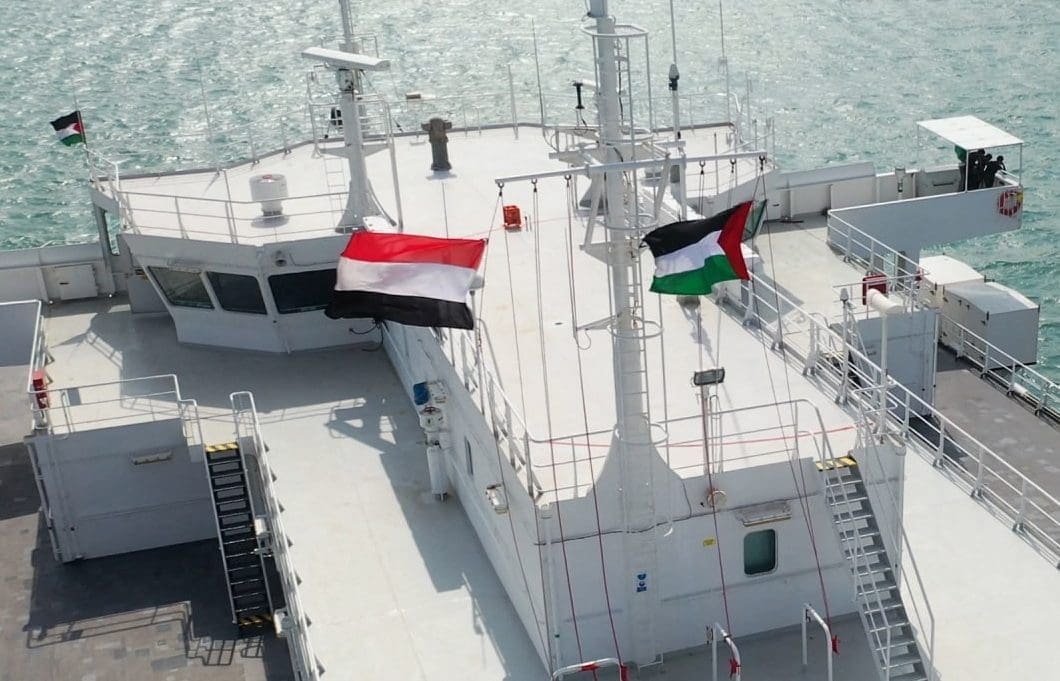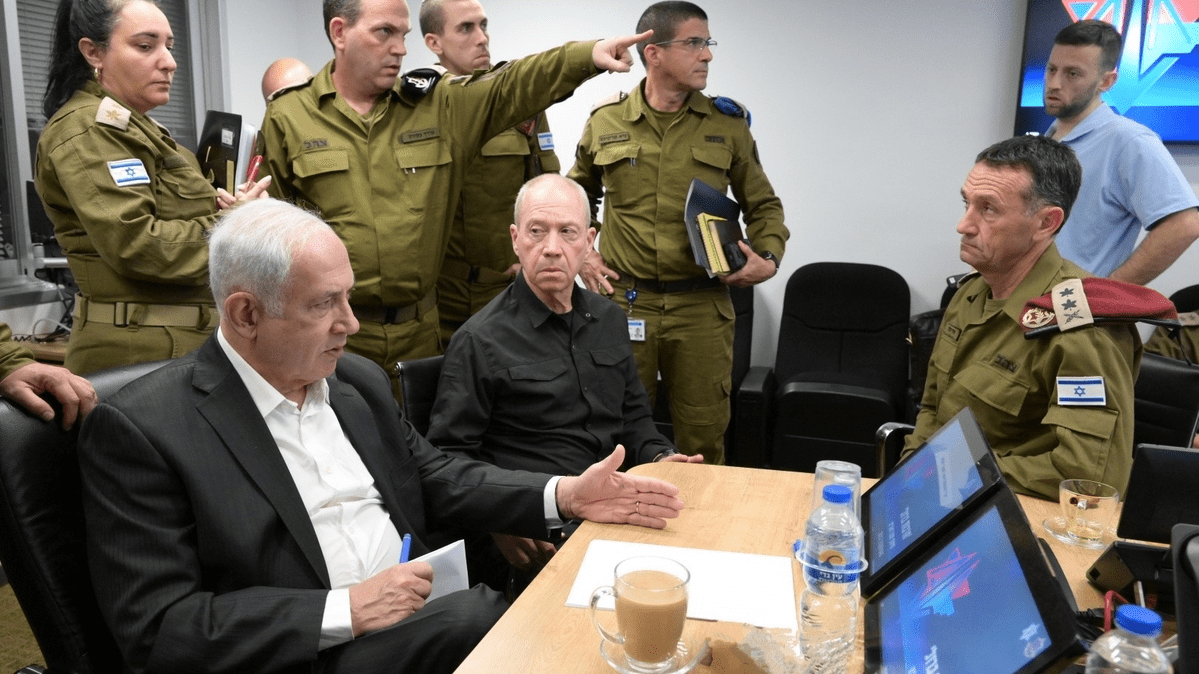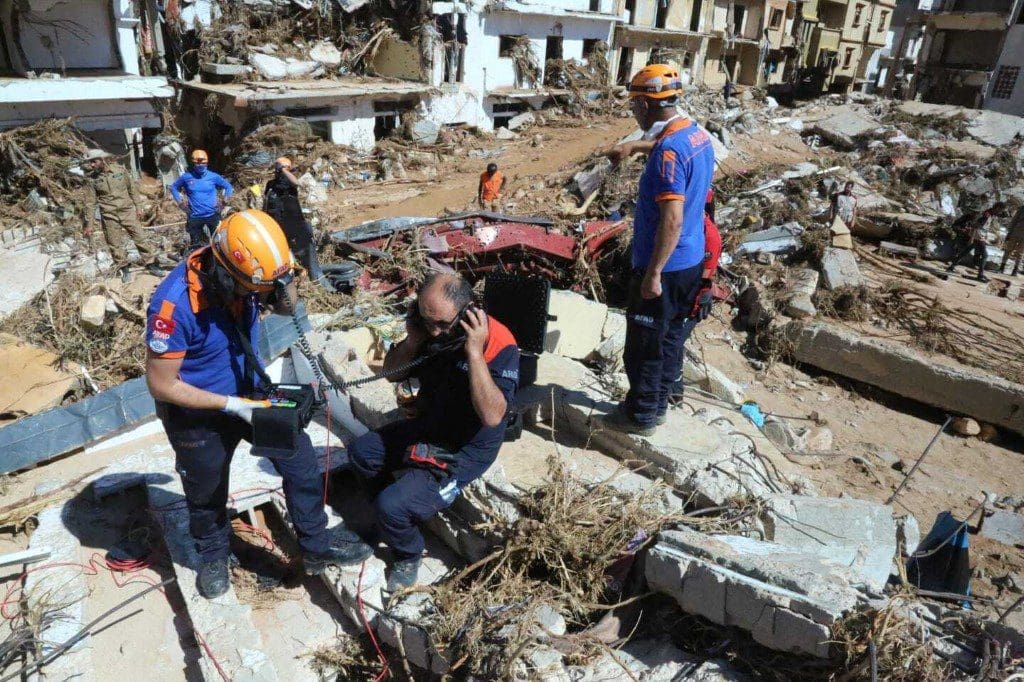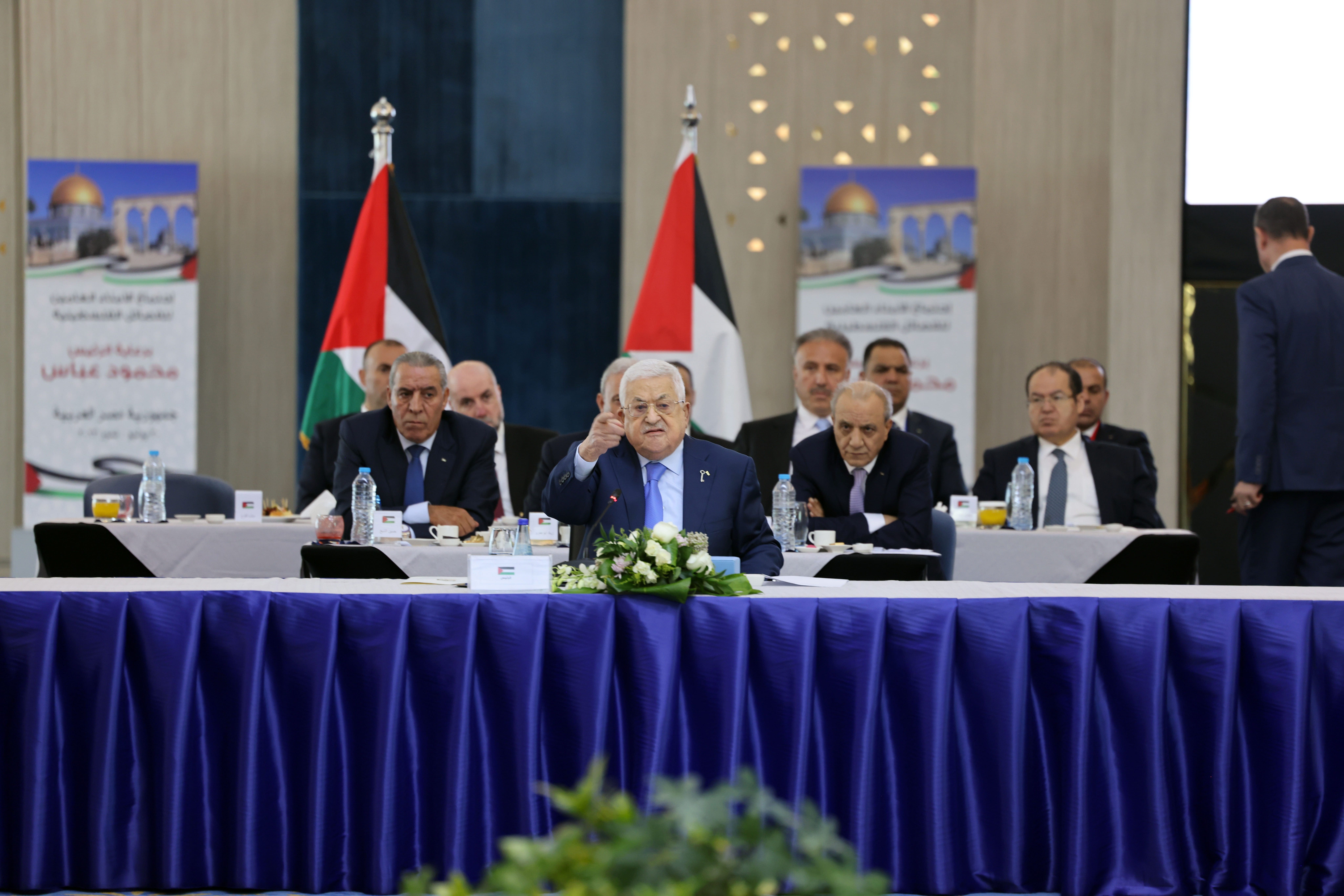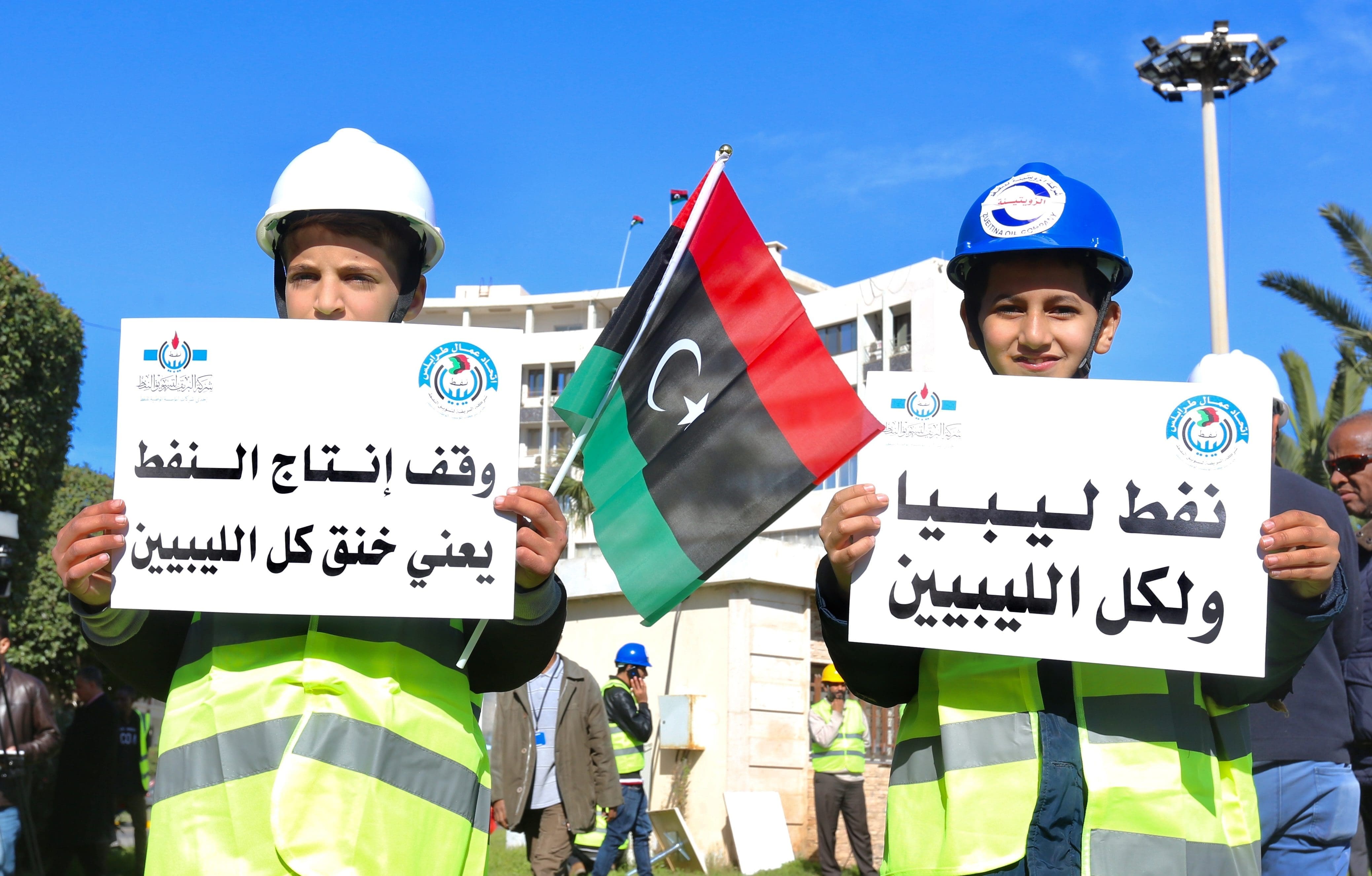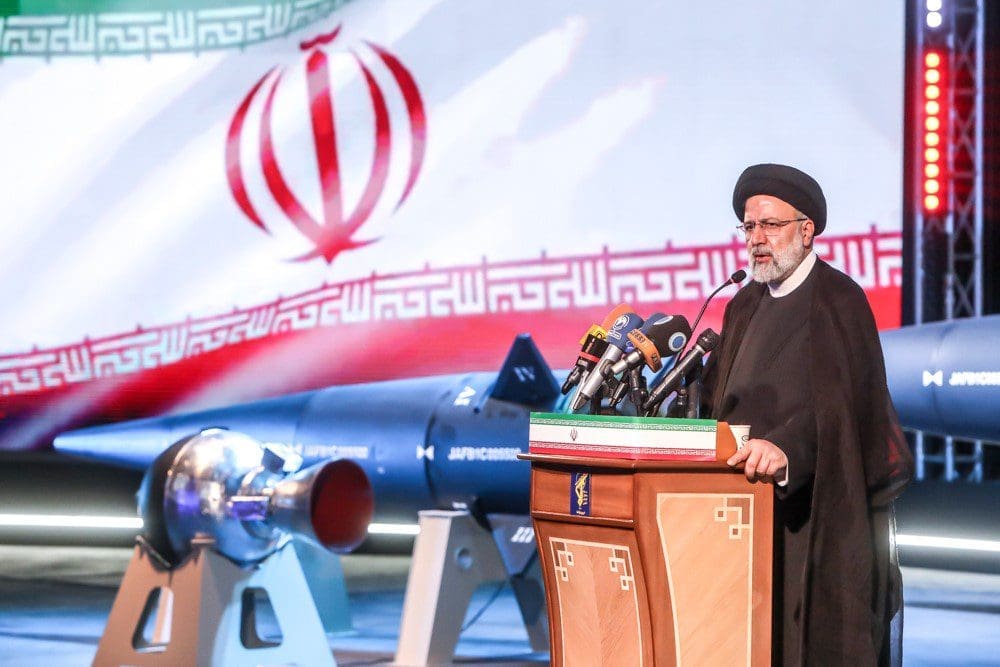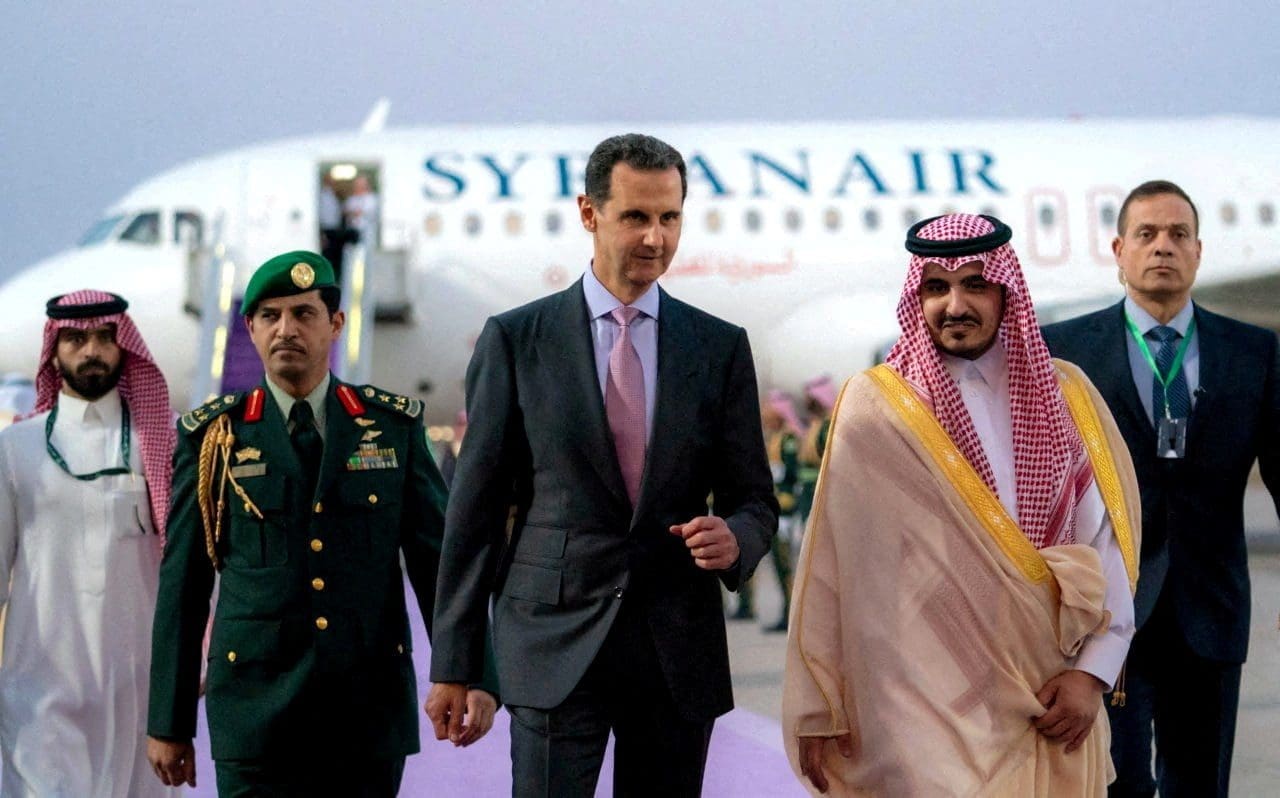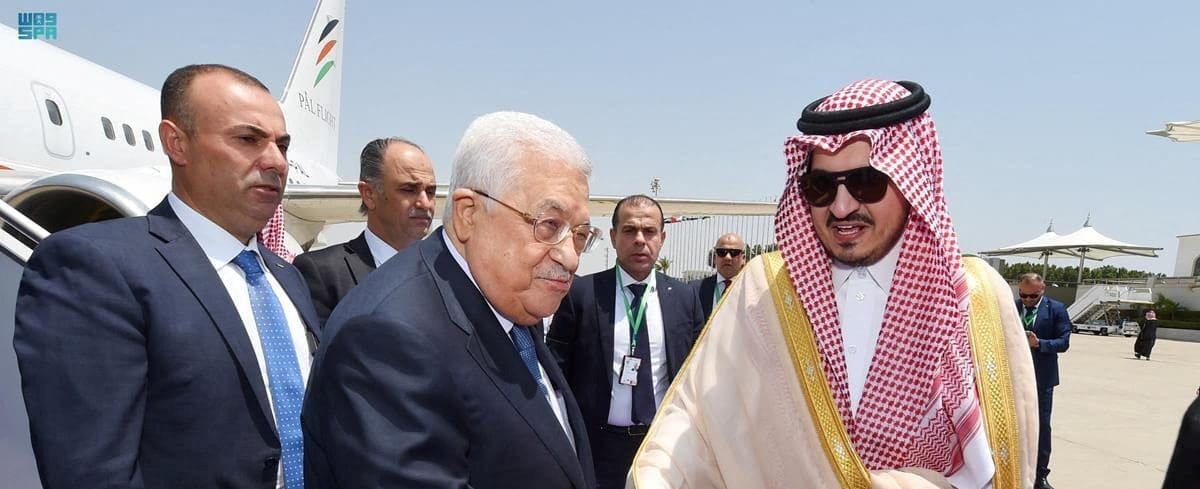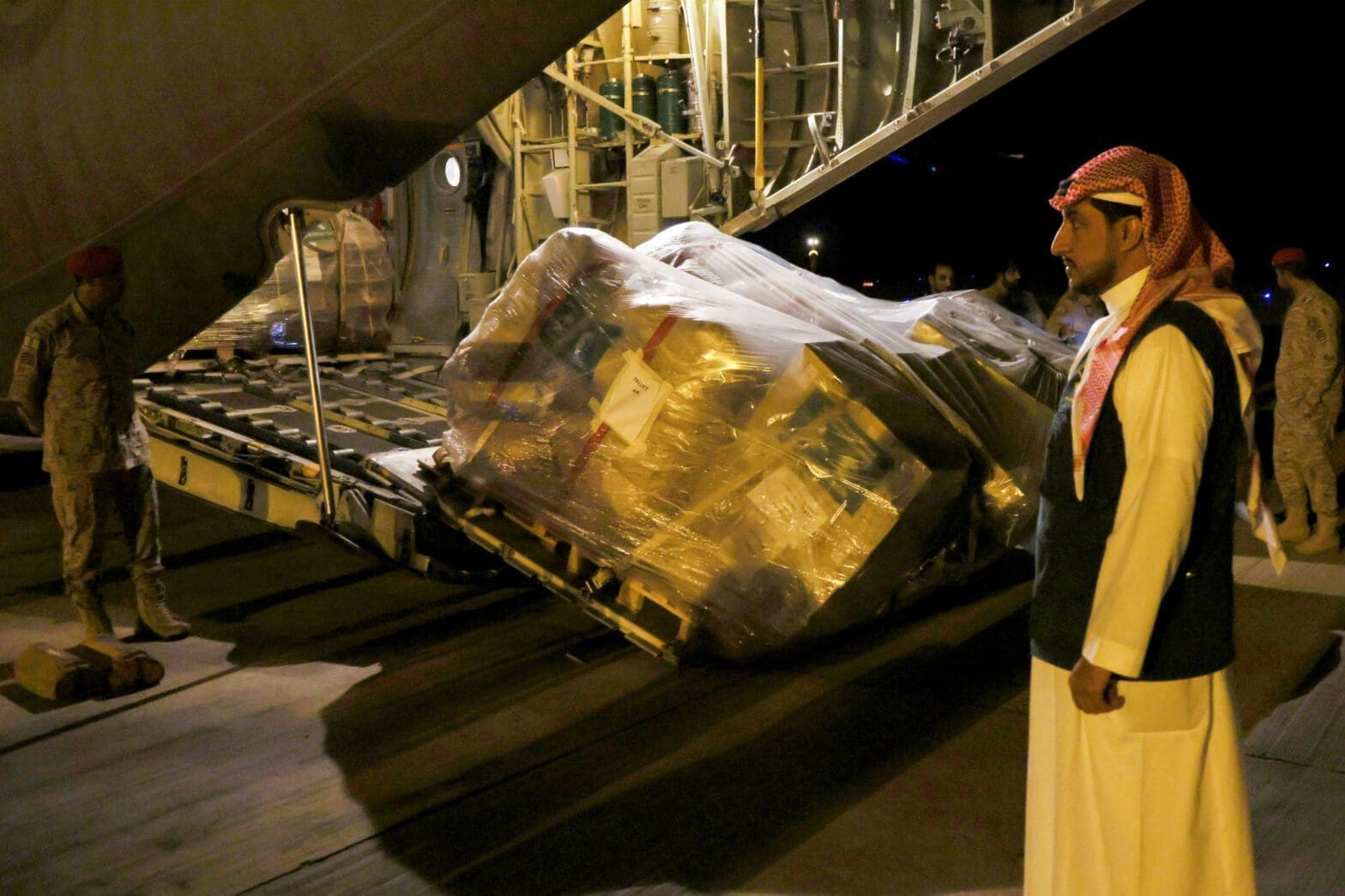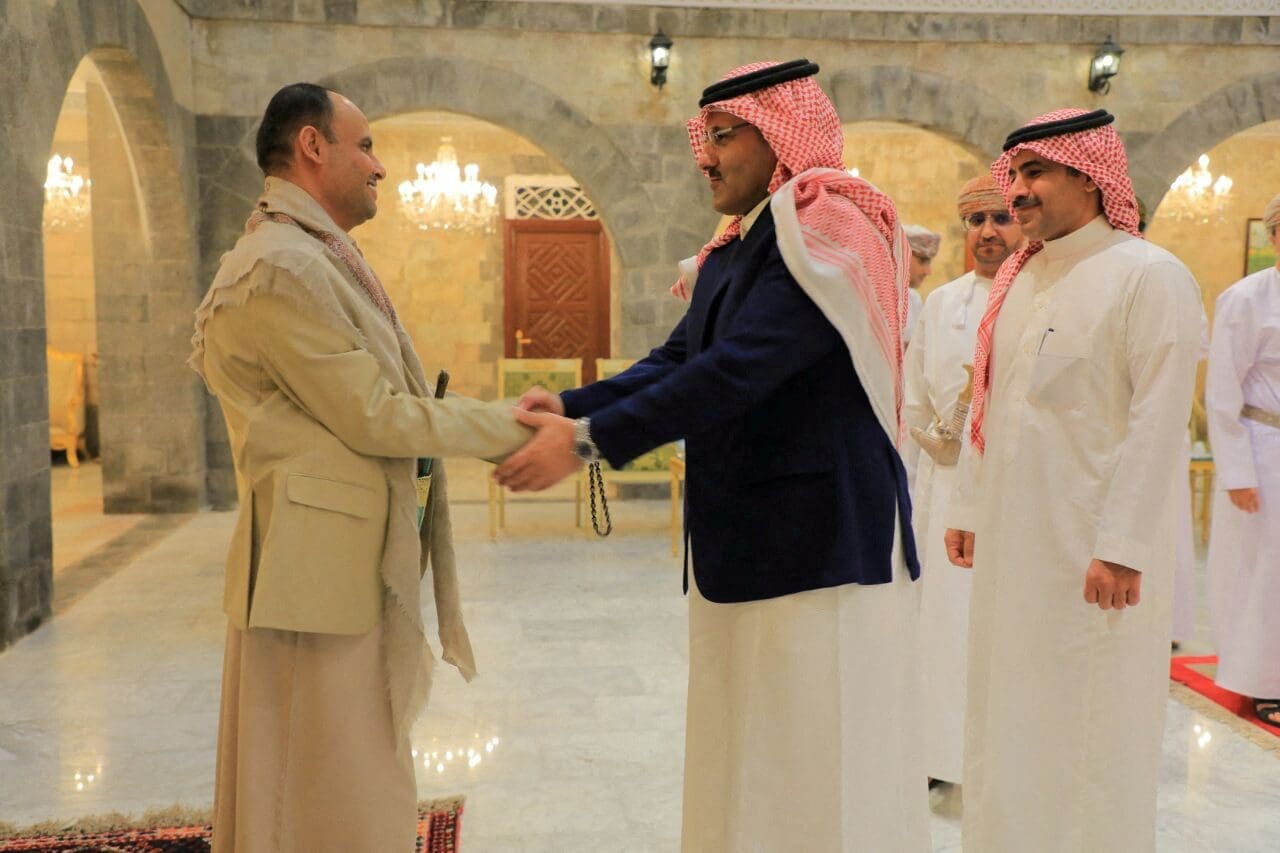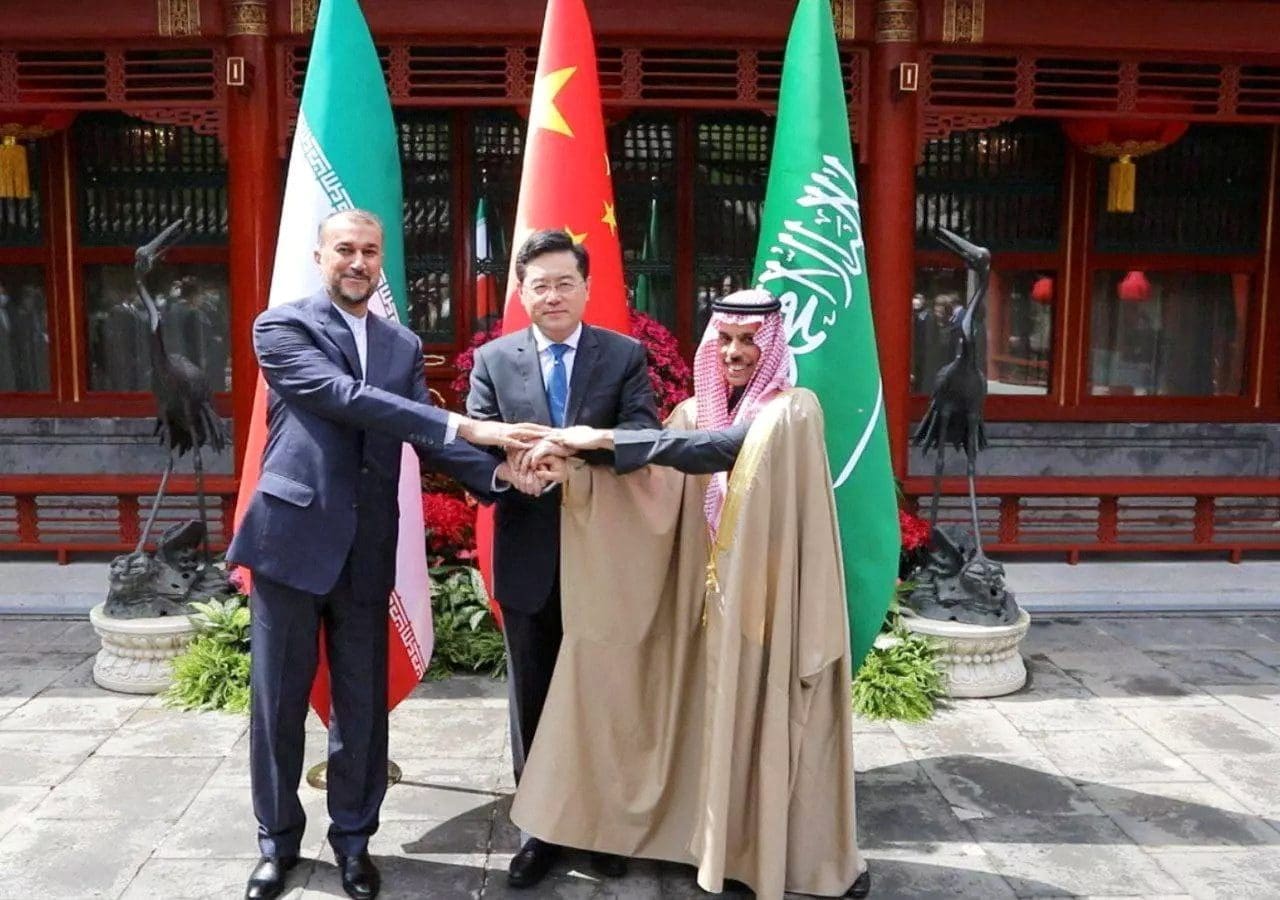In a world where health disparities dictate life outcomes, the need for inclusive and equitable health solutions is more pressing than ever. The first convening of the Doha Global South Health Policy Initiative held this week in Doha as a partnership between the Middle East Council on Global Affairs and the Bill & Melinda Gates… Continue reading Bridging the Gap: A Call for Inclusive Health Solutions from Doha
Afkar Region: MENA
Conflict in the Red Sea Makes Economic Waves
When the Yemen-based Houthi movement began attacking commercial shipping in the Red Sea in response to Israel’s war in Gaza, the impact on global trade was almost immediate. The international counter-response led by the United States, however, has only increased the likelihood of intensifying conflict and economic damage. As tensions build, the confrontation in the… Continue reading Conflict in the Red Sea Makes Economic Waves
Is a Regional War Inescapable?
Since October, the Middle East has edged ever closer to a regional war unlike any it has experienced before. While there has been plenty of armed hostility over the past 75 years, including between multiple state and non-state actors, the ambit of conflict this time around is so sweeping that it risks engulfing the entire… Continue reading Is a Regional War Inescapable?
Condemning Qatar is Counterproductive
This article was originally published in The National Interest on February 6, 2024. The Gulf state of Qatar is again capturing headlines for its role in mediating between Israel and Hamas. While a fresh deal for the release of hostages being held in Gaza is yet to be concluded, these efforts have produced the only… Continue reading Condemning Qatar is Counterproductive
Iran’s Strategy in the War on Gaza
The recent drone strike on American soldiers stationed near the Jordan-Syria border, and Washington’s retaliatory strikes in Iraq and Syria, underscore the dangerous potential for a major escalation between the United States and Iran that could engulf the wider region. Washington and Tehran have engaged in a tit-for-tat conflict for several months now, which has… Continue reading Iran’s Strategy in the War on Gaza
US in the Red Sea: Security Concerns or Power Play?
The waters of the Red Sea are heating up. In recent weeks, the United States has intensified efforts to clamp down on actions taken by the Houthis, a Yemen-based movement otherwise known as Ansar Allah, to disrupt maritime shipping believed to be connected to Israel as a retaliation for its near-total destruction of the Gaza… Continue reading US in the Red Sea: Security Concerns or Power Play?
Can the expanded BRICS pave a new path in global development?
At the start of this year, the so-called BRICS group of economies, namely Brazil, Russia, India, China, and South Africa, expanded its membership to five new countries, four of which are from the Middle East and North Africa region. As a global and heterodox bloc comprised of what were once termed “developing nations,” the expanded… Continue reading Can the expanded BRICS pave a new path in global development?
Gaza and Its Impact Three Months On – Council Views
Israel’s military campaign in Gaza is entering its fourth month with no end in sight and with the most devastating consequences imaginable for the 2.2 million Palestinian civilians living there, for which Israel is now facing charges of genocide at the International Court of Justice. The effects of this are also being felt well beyond… Continue reading Gaza and Its Impact Three Months On – Council Views
Washington Must Do More to Tackle West Bank Settler Violence
While the world’s attention has rightly been focused on the tragedy underway in Gaza, another deadly drama has been playing out nearby in the occupied West Bank. Since October 7, Jewish settlers have significantly escalated violent attacks against Palestinians, displacing hundreds from their villages and claiming more land for Israel. In the first month and… Continue reading Washington Must Do More to Tackle West Bank Settler Violence
Algeria at the BRICS’ Doorstep: A Journey of Aspirations and Opportunities
At the 15th BRICS Summit in South Africa, Algeria’s candidacy was not retained to join the 5-member grouping; six out of 23 candidates were chosen: Argentina, Egypt, Ethiopia, Iran, Saudi Arabia, and the UAE. While politically, Algeria is the ideal candidate, its economic standing might not have been attractive enough, at least not yet. The… Continue reading Algeria at the BRICS’ Doorstep: A Journey of Aspirations and Opportunities
Western Media Has Failed to Properly Cover Gaza Conflict
As catastrophe has unfolded in Gaza, with tragic humanitarian consequences for the territory’s residents and far-reaching geopolitical implications for the region and beyond, the Western media has played a pernicious role. Not only has it been sharply skewed in its framing of the tragedy, but its spread of disinformation, rooted in undocumented, contradictory or false narratives,… Continue reading Western Media Has Failed to Properly Cover Gaza Conflict
A Ceasefire in Gaza is the only Bridge toward Durable Peace in the Middle East
The shocking and unprecedented attack by Hamas on southern Israel caught the technologically advanced Israeli army and security forces by surprise. Hamas’s initial assault killed more than 1,400 Israelis, and thousands of Palestinians have been killed as Israel has retaliated in Gaza. Israel has said hundreds of hostages are being held in Gaza. In addition… Continue reading A Ceasefire in Gaza is the only Bridge toward Durable Peace in the Middle East
Houthis Involvement in Gaza War: A Tactical Move?
Yemen’s Houthi rebels have emerged as an unlikely player in the unfolding war in the Gaza Strip. On November 19, Houthi fighters hijacked a cargo ship in the Red Sea and took its crew hostage, citing the vessel’s association with Israeli business interests. On December 3rd, they attacked two Israeli commercial ships. The group, officially… Continue reading Houthis Involvement in Gaza War: A Tactical Move?
“Global Boiling” is a Grim Reality: MENA Governments Must do More to Prepare
For residents of sweltering parts of the Middle East and North Africa, it will come as little surprise that 2023 could be the hottest year on Earth since records began. July has already set a grim landmark as the hottest month on record, prompting United Nations Secretary-General António Guterres to remark that “the era of… Continue reading “Global Boiling” is a Grim Reality: MENA Governments Must do More to Prepare
Myth-Makers Cannot Hide Palestine’s Truth
The latest round of the Palestine-Israel conflict has lasted more than three weeks and, judging by the reluctance on the Israeli side for a truce, will continue for a long time. Despite the uncertainties of the endgame, the implications are already visible, one of which is that the Palestine issue has come back to the… Continue reading Myth-Makers Cannot Hide Palestine’s Truth
Genocide in Palestine? An Israeli Endgame in Gaza and Beyond
When considering the fate of Gaza, Benjamin Netanyahu wants Israelis to look to their scripture. “You must remember what Amalek has done to you,” he said during a recent press conference, referring to a biblical directive to “utterly destroy all that they have, and spare them not; but slay both man and woman, infant and suckling, ox… Continue reading Genocide in Palestine? An Israeli Endgame in Gaza and Beyond
Arrest Netanyahu and Halt the Gaza Genocide
For far too long the people of Palestine have been denied the right to exist as human beings, and to enjoy the freedoms we fought so hard for in South Africa. These rights do not belong to some and not to others. We have expressed our outrage at the war crimes in Palestine, particularly the… Continue reading Arrest Netanyahu and Halt the Gaza Genocide
Egypt and the Fear of a “Second Nakba”
As Israel steps up its brutal attack on the Gaza Strip with a ground invasion, a recently leaked concept paper from it’s Ministry of Intelligence adds to the mounting evidence that its ultimate goal is the forcible and permanent displacement of the besieged Gazans into neighboring Egypt’s Sinai Peninsula. In what effectively amounts to a… Continue reading Egypt and the Fear of a “Second Nakba”
Gaza Crisis puts US’ Unipolarity Push in Doubt
Zhai Jun, China’s Special Envoy on the Middle East affairs, is on a trip to the region to push for a cease-fire between Israel and Hamas. In his remarks at the Cairo Summit for Peace on the Palestinian Question on October 21, Zhai called for support for “the Palestinian people in restoring their lawful national… Continue reading Gaza Crisis puts US’ Unipolarity Push in Doubt
Gulf Normalization Under Strain as Israel Pounds Gaza
Since an unprecedented conflict flared between Israel and Hamas on October 7, the Arab Gulf states have been working to de-escalate and prevent the crisis from sparking a catastrophic regional war dragging in Iranian allies such as Hezbollah in Lebanon, armed groups in Syria and Houthi rebels in Yemen. Yet while the GCC states agree… Continue reading Gulf Normalization Under Strain as Israel Pounds Gaza
Lebanon Treads a Narrow Path to Avoid Regional War
Two weeks into the unfolding crisis in Palestine-Israel, and Lebanon is edging ever closer to the abyss of a war it cannot afford to fight. While there is a narrow, difficult path to avoid this outcome, options are dwindling with each passing day and the prospect of an escalation that consumes the region looms large. … Continue reading Lebanon Treads a Narrow Path to Avoid Regional War
The Hamas Raid and Israel’s Onslaught of Gaza
On October 7, Hamas shocked the world by carrying out an astonishing raid on Israel that killed around 1,300 people, most of them civilians, and taking an estimated 150 others hostage. The Israeli response has been devastating. For a week, Israel has indiscriminately bombarded Gaza from the sky, destroying residential buildings, hospitals, schools, and other… Continue reading The Hamas Raid and Israel’s Onslaught of Gaza
Operation Al-Aqsa Flood Exposes a Massive Israeli Intelligence Failure
Operation Al-Aqsa Flood, a sophisticated and deadly campaign by Hamas militants deep inside Israeli territory, represents a massive failure by Israel’s defense, security, and intelligence community. The Shin Bet domestic intelligence agency, Israeli Military Intelligence, and Mossad all failed to pick up on the group’s extensive planning, training, and supply activities as it prepared the… Continue reading Operation Al-Aqsa Flood Exposes a Massive Israeli Intelligence Failure
Hamas’ “Al-Aqsa Flood” Will Leave Nothing Untouched
*Editor’s note: At the time of publication, only 100 Israelis were reported to have been killed. This number would rise to 1,139. In the early morning hours of October 7, scores of Hamas fighters launched a dramatic and unprecedented land, air and sea attack on Israel. Coming a day after the 50th anniversary of… Continue reading Hamas’ “Al-Aqsa Flood” Will Leave Nothing Untouched
Türkiye Leverages Derna Relief to Reconcile with Eastern Libya
When catastrophic flooding and the collapse of two dams ripped the heart of eastern Libya’s Derna into the Mediterranean on the night of September 10, Türkiye was quick to respond. The Turkish Ministry of Defense announced that it was sending two warships to Libya carrying 360 personnel, including members of the state disaster-management agency AFAD,… Continue reading Türkiye Leverages Derna Relief to Reconcile with Eastern Libya
Palestinians Continue to be Haunted by the Ghosts of Oslo
A decade after the initial Oslo Accord was signed in 1993, public opinion on the process it spawned was divided between those who believed it was a promising initiative to achieve Israeli-Palestinian peace that was tragically derailed, and those who insisted that it lacked the rudimentary elements of a meaningful peace process. Today, those who… Continue reading Palestinians Continue to be Haunted by the Ghosts of Oslo
A Military Intervention in Niger Would Deepen the Sahel’s Woes
July’s military coup against Niger’s pro-western President Mohamed Bazoum has sparked a complex crisis with momentous consequences for the entire region. The latest in a string of military power-grabs across the Sahel, it has drawn a particularly sharp reaction from former colonial power France, which has forces stationed in the country—ostensibly to fight Islamist militants—and… Continue reading A Military Intervention in Niger Would Deepen the Sahel’s Woes
BRICS Summit: Shaping a New Geopolitical Landscape – Council Views
The Impact of BRICS on the International Order Galip Dalay The 2023 BRICS summit has attracted unprecedented international interest due to the geopolitical context of increasing U.S.-China competition and the Global South’s balancing act regarding the Russia-Ukraine war. As competition between global powers intensifies, Western actors increasingly see this bloc, and others like the Shanghai… Continue reading BRICS Summit: Shaping a New Geopolitical Landscape – Council Views
The Limits to Iran’s Trade Push in Africa
In July, Iranian President Ebrahim Raisi embarked on a three-country tour in Africa to expand relations on the continent, the first of its kind by an Iranian leader in more than a decade. The trip, to Kenya, Uganda and Zimbabwe, followed a similar visit to Latin America. Both were part of a strategic push by… Continue reading The Limits to Iran’s Trade Push in Africa
The Persistent Illusion of Palestinian Reconciliation
Representatives of 14 Palestinian political factions, including Fatah and Hamas, were invited to the Egyptian coastal city of El-Alamein on July 30, 2023 for reconciliation talks hosted by Egyptian President Abdel Fattah el-Sisi. Facing challenges from the recurrent and increasingly violent onslaught by Jewish settlers and Israeli occupation forces throughout the West Bank since the beginning of… Continue reading The Persistent Illusion of Palestinian Reconciliation
Syria Is Back, But Normalization Has Its Limits
The visit of Iraq’s prime minister to Damascus in July was the latest sign that Syria is mending ties with its neighbourhood, more than a decade after the Arab League suspended its membership over its brutal repression of anti-government protests. As the country’s catastrophic civil war settles, the regime of Bashar al-Assad can chalk up… Continue reading Syria Is Back, But Normalization Has Its Limits
Libyan Effort to Clean Up State Finances Sidesteps Deeper Issues
As political tensions in Libya simmer amid fresh uncertainty over elections, the Libyan Presidency Council recently moved to address another issue at the heart of the country’s divisions. Only July 6, the Tripoli-based body announced it was establishing a High Financial Oversight Committee, with sweeping responsibilities to oversee Libya’s vital oil revenues, scrutinize government budgets… Continue reading Libyan Effort to Clean Up State Finances Sidesteps Deeper Issues
Will Yemen’s New Hadramout Council Lead to Federalism or More Fragmentation?
The creation of a new governing council for Yemen’s largest province could mark a key moment in the country’s nine-year civil war. The Hadhramout National Council (HNC) was unveiled in late June after meetings between influential actors from across the vast eastern province, as well as Western ambassadors, under Saudi auspices. The council, set to… Continue reading Will Yemen’s New Hadramout Council Lead to Federalism or More Fragmentation?
Erdogan’s Gulf Visit Heralds New Regional Approach
Weeks after winning a new five-year term as president of Türkiye, Recep Tayyip Erdogan visited Saudi Arabia, the United Arab Emirates and Qatar with a delegation that included nearly 200 business and government officials. The veteran leader’s first visit to the region since his electoral victory in May is the culmination of a rapid reconciliation… Continue reading Erdogan’s Gulf Visit Heralds New Regional Approach
Will Egypt be the next to normalize relations with Iran?
Speculation has been growing in recent months that Egypt and Iran could be close to putting decades of mutual antagonism behind them. In early May, Egyptian and Iraqi officials said talks were underway in Baghdad with a view to mending relations between the two major regional powers. Later that month, Supreme Leader Ayatollah Ali Khamenei… Continue reading Will Egypt be the next to normalize relations with Iran?
Can Iran-Saudi Rapprochement overcome Tehran’s anti-Western worldview?
When Saudi Foreign Minister Prince Faisal bin Farhan visited Iran in June, many viewed the event as further evidence of rapidly warming relations between the two regional rivals, who resumed diplomatic ties in March after years of open hostility. The image of the Saudi prince alongside Iran’s president, Ebrahim Raisi, conveyed the message that the… Continue reading Can Iran-Saudi Rapprochement overcome Tehran’s anti-Western worldview?
Saudi Arabia’s Great Transformation
An unprecedented experiment in economic and social transformation is playing out in Saudi Arabia, and the outcome could have profound implications for the entire Arab world. The main goal of the kingdom’s Vision 2030 plan is to shift the economy away from fossil fuels. It is a timely pivot, given that greenhouse-gas emissions must be… Continue reading Saudi Arabia’s Great Transformation
MENA States’ Assertive Approach in the Era of Emerging Multipolarity
As American dominance of the Middle East and North Africa wanes and other world powers step up their efforts to win friends and influence there, long-time U.S. allies are becoming more assertive towards Washington and recalibrating their other ties to better secure their own interests. The growing U.S.-China strategic rivalry will profoundly impact the region… Continue reading MENA States’ Assertive Approach in the Era of Emerging Multipolarity
Interview: What Lies Ahead for Türkiye After the Elections?
1. What accounts for the election results, both in terms of Erdogan’s performance and the opposition alliance’s defeat? What will happen to the alliance now? The election results illustrate that President Erdogan’s campaign narratives of maintaining continuity in tumultuous times, his quest to make Türkiye a powerhouse in international affairs, and the fight against terrorism,… Continue reading Interview: What Lies Ahead for Türkiye After the Elections?
How Does Iran View Syria’s Return to the Arab League?
In May 2023, Syria returned to the Arab League following a near-12-year suspension. The move has far-reaching implications for both the region and the international community. It came after more than a decade of widespread atrocities by Bashar Al-Assad’s regime against its own citizens, abuses that have cast a long shadow over Syria’s relationships with… Continue reading How Does Iran View Syria’s Return to the Arab League?
Will the Saudi-Iran Rapprochement change anything for the Palestinians?
Amid the zeitgeist of diplomatic rapprochement and normalization in the Middle East—which has recently seen Saudi Arabia and Iran mend ties and Syria’s Bashar al-Assad welcomed at this month’s Arab League summit—the Palestinian Islamist movement Hamas took a step forward to repair its own regional relationships. In mid-April, a delegation of senior Hamas officials, led… Continue reading Will the Saudi-Iran Rapprochement change anything for the Palestinians?
Saudi Arabia and the UAE on Edge as Generals Battle It Out in Sudan
As Sudan’s two main armed forces battle for control of Khartoum, hopes for a truce may lie on the other side of the Red Sea. Saudi Arabia has been holding talks in Jeddah reportedly focused on reaching a ceasefire and ensuring aid can reach those affected by the fighting, which has already killed hundreds of… Continue reading Saudi Arabia and the UAE on Edge as Generals Battle It Out in Sudan
Will Türkiye’s Elections Produce a Change in Leadership and Regional Posture?
On May 14, Türkiye will hold its most consequential elections in decades, with implications that extend well beyond its borders. For 21 years, Recep Tayyip Erdogan has dominated the country’s politics, reshaping its identity and outlook at home and abroad, while becoming the most recognizable Turkish politician on the global stage in nearly a century.… Continue reading Will Türkiye’s Elections Produce a Change in Leadership and Regional Posture?
Sudan Conflict: Regional Implications – Council Views
The eruption of violent conflict in Sudan on April 15 has cast the country into, perhaps, the darkest period yet in its five-year transition toward civilian rule, which began with nationwide protests in 2018 and the toppling of Omar al-Bashir a year later, after three decades in power. The recent outbreak of fighting between the… Continue reading Sudan Conflict: Regional Implications – Council Views
Time to Tackle the Transparency Deficit in the MENA Region
It is widely known that the Middle East and North Africa (MENA) region suffers from a “democratic deficit.” What is less well-appreciated is that the region also suffers from a chronic deficit in transparency. The World Bank’s Vice President for MENA, Ferid Belhaj, recently called attention to this problem, stating that Egypt needs to get… Continue reading Time to Tackle the Transparency Deficit in the MENA Region
Saudi-Iran Rapprochement Unlikely to Bring Lasting Peace to Yemen
A diplomatic agreement between Saudi Arabia and Iran has raised hopes that it could lead to a peace agreement in Yemen, where war has raged with the help of both parties for over eight years. Over the past week, Houthi officials have been holding peace talks in Sanaa with a delegation led by Saudi Ambassador… Continue reading Saudi-Iran Rapprochement Unlikely to Bring Lasting Peace to Yemen
The Saudi-Iranian Deal Is Important, but Don’t Expect a Wider Peace
The March 6 announcement that Saudi Arabia and Iran were re-establishing diplomatic ties was an important moment for the Middle East. The Chinese-brokered deal has the potential to end the devastating eight-year conflict in Yemen and address geopolitical tensions elsewhere. From the Saudi perspective, it may end Iranian proxy attacks on Saudi oil facilities, including… Continue reading The Saudi-Iranian Deal Is Important, but Don’t Expect a Wider Peace
Rising Anti-Refugee Sentiment in Türkiye Unshaken by Earthquakes
The earthquakes that struck Türkiye and Syria in February devastated large areas of both countries, killing over 50,000 people and forcing millions from their homes. It was Türkiye’s worst natural disaster in decades. For Syrian refugees living in the area, it was a double catastrophe. Already forced from their country by war, they now found… Continue reading Rising Anti-Refugee Sentiment in Türkiye Unshaken by Earthquakes
Biden’s Strategic Neglect of Palestine is Bound to Backfire
Since the start of its term, the administration of U.S. President Joe Biden has been reluctant to engage substantively with the Israeli-Palestinian issue. Instead, it has focused its limited efforts on perpetuating the status quo, on the pretext that circumstances are not conducive to initiatives to change it. What can be described as a policy… Continue reading Biden’s Strategic Neglect of Palestine is Bound to Backfire
The Iraq War 20 Years On – Council Views
Still No U.S. Accountability Adel Abdel Ghafar The 2003 U.S. invasion of Iraq was a terrible calamity, unleashing disastrous consequences that continue to reverberate across the Middle East. First and foremost, the war resulted in the deaths of an estimated 300,000 Iraqis and the displacement of millions. Saddam Hussein’s regime was brutal, and the legacy… Continue reading The Iraq War 20 Years On – Council Views






